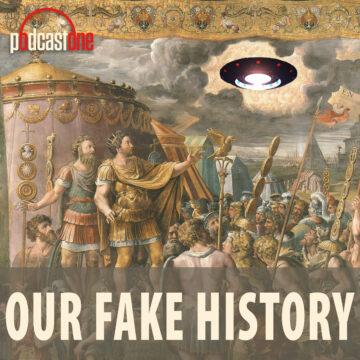This might be the most important podcast episode I’ve put out in the last two years. Please trust me and give it a full listen. It will surprise you, perhaps shock you, and definitely make you think differently.
Michael Pollan (@michaelpollan) is the author of seven previous books, including Cooked, Food Rules, In Defense of Food, The Omnivore’s Dilemma, and The Botany of Desire, all of which were New York Times bestsellers. A longtime contributor to the New York Times Magazine, he also teaches writing at Harvard and the University of California, Berkeley where he is the John S. and James L. Knight Professor of Science Journalism. In 2010, Time magazine named him one of the 100 most influential people in the world.
His most recent book, How to Change Your Mind: What the New Science of Psychedelics Teaches Us About Consciousness, Dying, Addiction, Depression, and Transcendence, might be my favorite yet. This is the first podcast interview Michael has done about the book, the science and applications of psychedelics, his exploration, and his own experiences. It is a wild ride.
In fact, partially due to this book, I am committing a million dollars over the next few years to support the scientific study of psychedelic compounds. This is by far the largest commitment to research and nonprofits I’ve ever made, and if you’d like to join me in supporting this research, please check out tim.blog/science.
In our wide-ranging conversation, we cover many things, including:
- The fundamentals of “psychedelics,” what the term means, and what compounds like psilocybin, mescaline, and others have in common.
- New insights related to treatment-resistant depression, anxiety, alcohol/nicotine dependence, OCD, PTSD, and more.
- Recent scientific and clinical discussions of a “grand unified theory of mental illness.”
- Potential applications and risks of psychedelics.
- Michael’s own experiences — which he did not initially intend on having — and what he’s learned from them.
- The “entropic brain,” and why there might be a therapeutic sweet spot between mental order and chaos.
- Why researchers at Johns Hopkins, NYU, Yale, and elsewhere are dedicating resources to understanding these compounds.
- And much, much more…
The molecules discussed in this episode — and some incredible clinical results from well-designed studies — have absolutely captured my attention over the last two years. After wading in and supporting smaller studies, I’ve decided to go all-in on scientists exploring this area. It seems to be an Archimedes lever for potentially solving a wide range of root-cause problems, instead of playing whack-a-mole with symptoms one by one.
This episode is brought to you by Teeter. Inversion therapy, which uses gravity and your own body weight to decompress the spine or relieve pressure on the discs and surrounding nerves, seems to help with a whole slew of conditions. And just as a general maintenance program, it’s one of my favorite things to do.
Since 1981, more than three million people have put their trust in Teeter inversion tables for relief, and it’s the only inversion table brand that’s been both safety-certified by Underwriters Laboratories (UL) and registered with the FDA as a class one medical device. For a limited time, my listeners can get the Teeter inversion table with bonus accessories and a free pair of gravity boots — a savings of over $148 — by going to Teeter.com/Tim!
This podcast is also brought to you by Helix Sleep. I recently moved into a new home and needed new beds, and I purchased mattresses from Helix Sleep. It offers mattresses personalized to your preferences and sleeping style — without costing thousands of dollars. Visit Helixsleep.com/TIM and take the simple 2-3 minute sleep quiz to get started, and the team there will build a mattress you’ll love. Plus you’ll get up to $125 off your mattress order.
***
If you enjoy the podcast, would you please consider leaving a short review on Apple Podcasts/iTunes? It takes less than 60 seconds, and it really makes a difference in helping to convince hard-to-get guests. I also love reading the reviews!
For show notes and past guests, please visit tim.blog/podcast.
Sign up for Tim’s email newsletter (“5-Bullet Friday”) at tim.blog/friday.
For transcripts of episodes, go to tim.blog/transcripts.
Interested in sponsoring the podcast? Please fill out the form at tim.blog/sponsor.
Discover Tim’s books: tim.blog/books.
Follow Tim:
Twitter: twitter.com/tferriss
Instagram: instagram.com/timferriss
Facebook: facebook.com/timferriss
YouTube: youtube.com/timferriss
Past guests on The Tim Ferriss Show include Jerry Seinfeld, Hugh Jackman, Dr. Jane Goodall, LeBron James, Kevin Hart, Doris Kearns Goodwin, Jamie Foxx, Matthew McConaughey, Esther Perel, Elizabeth Gilbert, Terry Crews, Sia, Yuval Noah Harari, Malcolm Gladwell, Madeleine Albright, Cheryl Strayed, Jim Collins, Mary Karr, Maria Popova, Sam Harris, Michael Phelps, Bob Iger, Edward Norton, Arnold Schwarzenegger, Neil Strauss, Ken Burns, Maria Sharapova, Marc Andreessen, Neil Gaiman, Neil de Grasse Tyson, Jocko Willink, Daniel Ek, Kelly Slater, Dr. Peter Attia, Seth Godin, Howard Marks, Dr. Brené Brown, Eric Schmidt, Michael Lewis, Joe Gebbia, Michael Pollan, Dr. Jordan Peterson, Vince Vaughn, Brian Koppelman, Ramit Sethi, Dax Shepard, Tony Robbins, Jim Dethmer, Dan Harris, Ray Dalio, Naval Ravikant, Vitalik Buterin, Elizabeth Lesser, Amanda Palmer, Katie Haun, Sir Richard Branson, Chuck Palahniuk, Arianna Huffington, Reid Hoffman, Bill Burr, Whitney Cummings, Rick Rubin, Dr. Vivek Murthy, Darren Aronofsky, and many more.
See Privacy Policy at https://art19.com/privacy and California Privacy Notice at https://art19.com/privacy#do-not-sell-my-info.









